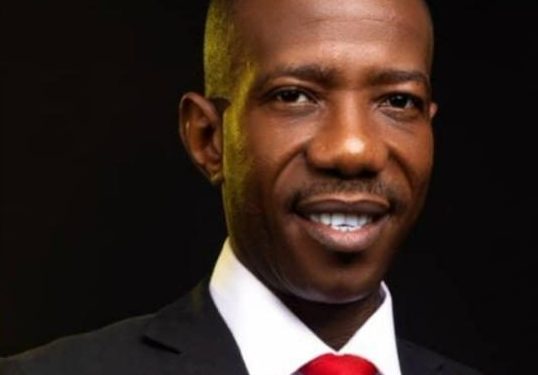By Mackie M. Jalloh
In a notable turn of events, the High Court has cleared Bai Mahmoud Bangura, the National Organizing Secretary of the All People’s Congress (APC), of all treason-related charges. This long-awaited verdict, delivered by Justice Komba Kamanda, comes as a considerable victory not only for Bangura but also for the APC and its supporters, who have rallied around him throughout the turbulent trial.
The case, rooted in allegations dating back to November 2023, accused Bangura and eleven others of conspiracy in a supposed plot to destabilize the government. At the core of the prosecution’s argument was the discovery of military uniforms at Bangura’s Regent residence, where Mohamed Jalloh, an acquaintance of Bangura, was found in possession of this prohibited apparel. The discovery led authorities to question Bangura’s involvement, suggesting that he may have been connected to a larger scheme aimed at undermining state security. These accusations quickly escalated to charges of treason and misprision of treason, with Bangura allegedly implicated in facilitating a failed coup attempt.
Throughout the proceedings, Bangura maintained his innocence, asserting that he was not involved in any conspiracy against the government. His defense argued that the uniforms found in his residence were not directly tied to him or to any broader plan. For Bangura, the experience became deeply personal, impacting both his public and private life, as he fought to clear his name and protect his reputation. The trial took a toll on him physically as well. During one of the court sessions, Bangura collapsed, underscoring the tremendous stress he was under as he faced the state’s accusations. Justice Kamanda, recognizing Bangura’s fragile health, ordered a separate trial, allowing him time and space to recover as he continued his legal fight.
After months of deliberation and careful examination of evidence, Justice Kamanda ruled that the allegations against Bangura lacked sufficient grounds. The judge’s decision to acquit Bangura of all charges came as a powerful statement, highlighting the importance of due process and the necessity for concrete evidence when prosecuting high-stakes charges. The court found no verifiable link between Bangura’s actions and any attempt to destabilize the government, ultimately concluding that the charges were unfounded.
For Bangura and the APC, this verdict symbolizes more than just legal exoneration; it represents a moral victory and a testament to their resilience. Bangura, speaking outside the courthouse, expressed heartfelt gratitude to his supporters, especially those within the APC who never wavered in their belief in his innocence. “This has been one of the most challenging periods of my life. I owe my deepest thanks to the APC family and to all my supporters who stood by me,” Bangura stated, his voice tinged with both relief and exhaustion.
Beyond gratitude, Bangura’s message was one of reconciliation and faith. He urged his family, friends, and supporters to let go of any anger and embrace forgiveness. “I hold no ill will towards anyone,” he said, emphasizing his desire to move forward peacefully. “I believe in the will of the Almighty, and I trust that this experience has strengthened me. Let’s focus on unity and collective growth,” he added.
This case, while emotionally draining for Bangura and those close to him, also served as a defining moment for the APC. Party leaders, who had spoken out in support of Bangura over the months, commended his resilience and praised the legal team for their unwavering commitment to justice. Bangura’s acquittal not only restores his standing within the APC but also allows him to continue his political journey without the shadow of treason charges looming over him.
As Bai Mahmoud Bangura steps away from this chapter, he faces a new horizon where he hopes to channel his experience toward fostering peace and resilience within his party and community. The legal victory, significant in itself, is merely the beginning of his path toward personal healing and broader unity for the APC.













